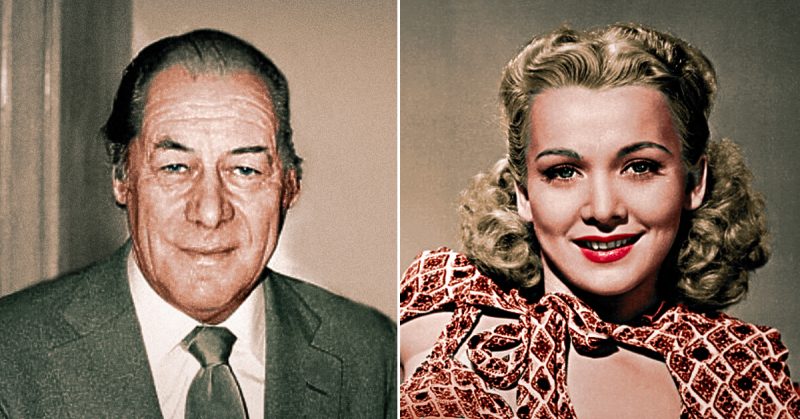Affairs happen all the time in Hollywood. Par for the course, really, when you throw a bunch of good-looking and charismatic creative types together and add money to the mix.
But few liaisons have ended so tragically than the one between British actor Rex Harrison and actress Carole Landis, in the late 40s.
When it was all over, Harrison would barely recover from the fallout. The same, unfortunately, could not be said of Landis.
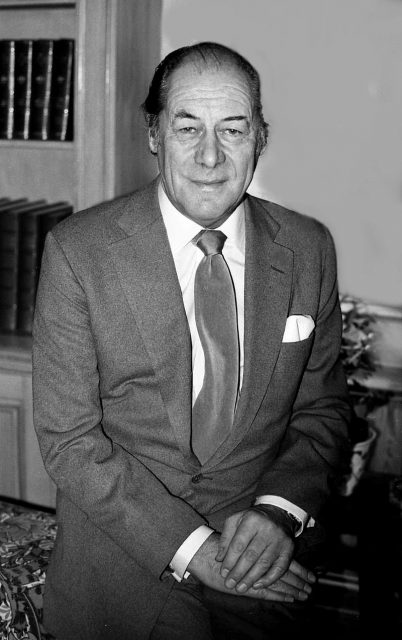
Perhaps the two were destined to meet and, well, mingle. Arrogant and egotistical, Harrison was a much-married, well-known womanizer, and something of a “love ‘em and leave ‘em” cad. Landis was a fun-loving handful.
This was someone who got hitched to her 19-year-old sweetheart…when she was just 13 years old. (Her horrified mother promptly had it annulled, but a few months later, the two tied the knot again. The union lasted all of three weeks.)
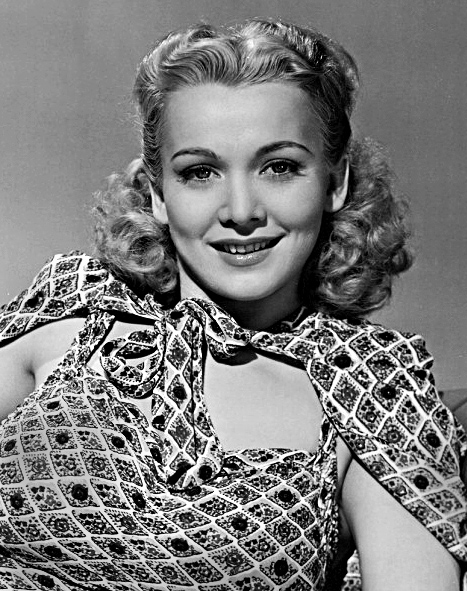
Landis arrived in Hollywood in 1936. Even in a town packed with gorgeous women, the blonde-haired, blue-eyed beauty stood out.
She nabbed a string of bit parts and was given a nickname by the studio publicity department: “The Ping Girl.” In 1940, Landis got her big break, starring opposite Victor Mature in One Million B.C.
She believed the role would be a launch pad to bigger things. But for the most part, a frustrated Landis was relegated to supporting roles — often opposite the more wholesome Betty Grable (Moon Over Miami and I Wake Up Screaming, both 1941).
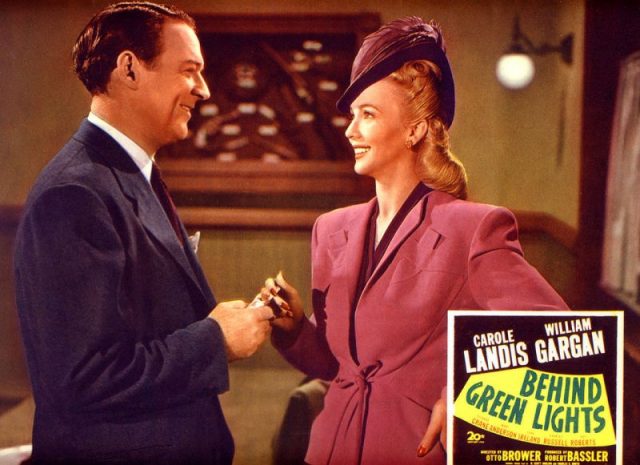
Landis was more successful at romance. The list of paramours was long, and included director and choreographer Busby Berkeley, 20th Century Fox studio head Darryl F. Zanuck, Francois Tone (fresh from his divorce from Joan Crawford), Gene Markey (ex-husband of Hedy Lamarr and Joan Bennett), among others.
In 1942, disappointed about her lack of success in movies, Landis embarked on an overseas USO tour with other celebrities. A few years later, in 1945, she tackled Broadway in the musical A Lady Says Yes. In a smaller role: Jacqueline Susann, who would go on to write the biggest pot-boiler of all time, Valley of the Dolls.
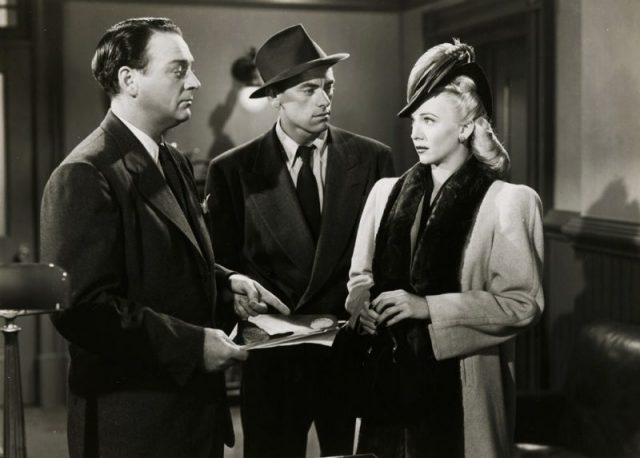
The two would become friends and it’s rumored that Susann based one of the main characters in her bestseller—the ill-fated Jennifer North, played in the movie by the ill-fated Sharon Tate—on her pal.
Landis and husband number four, Broadway producer Horace Schmidlapp, separated in 1947, around the time that Harrison arrived in Hollywood with his wife, actress Lilli Palmer.
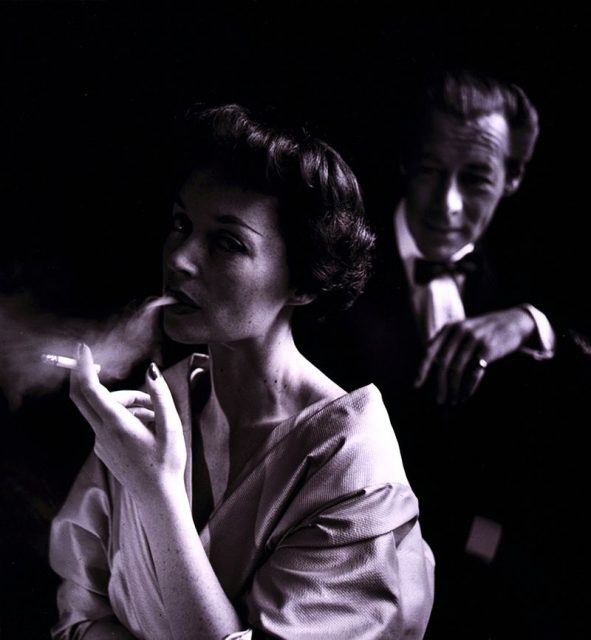
Of course, little things like a gold band and marriage certificate had never stopped Harrison before, so it wasn’t long before he and Landis embarked in a torrid affair.
The two brazenly flaunted their infatuation, dancing together at dinner parties, while a humiliated Palmer looked on — making their dalliance one of the of the worst-kept secrets in Hollywood.
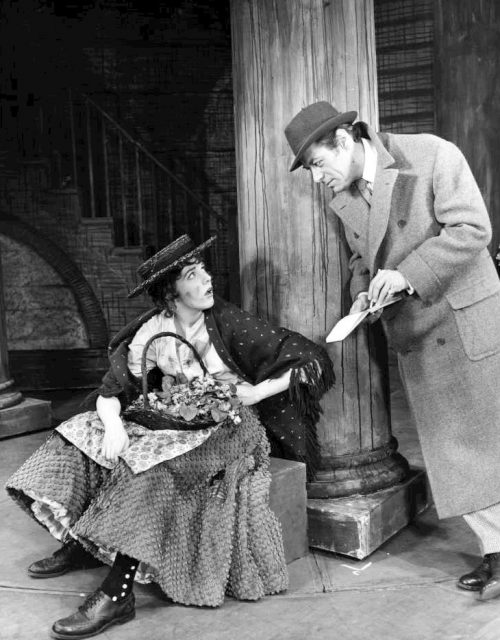
Enter dirt-dishing journalist Walter Winchell, who proceeded to fling more gasoline into the fire, announcing in a column that Harrison’s wife knew all about the affair, and that Harrison and Landis would be married.
That’s when Fox chief Darryl Zanuck got involved and lowered the boom…big time. He called Harrison into his office and informed the actor that he would not be unloading his wife for Landis. For good measure, Zanuck also let Harrison in on Landis’s rather randy reputation during her days at Fox studio.
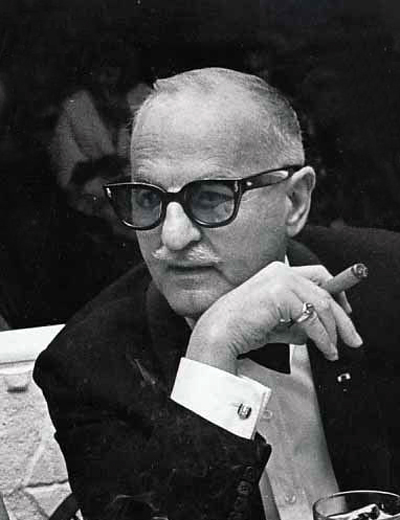
If Zanuck thought that Harrison would break things off after learning of Landis’ extracurricular activities, he seriously miscalculated his leading man. That spring, after Harrison completed the ironically titled Unfaithfully Yours, he returned to Landis.
Harrison’s wife had gone to New York to stay with her sister and lick her wounds, giving the two lovebirds ample opportunity to spend time together.
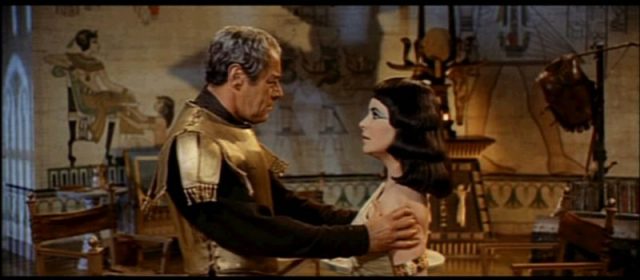
This was the opportunity Landis had waited for. The actress, staring down the barrel of her 30th birthday, truly believed that Harrison would leave his wife and make an honest woman out of her.
She was mistaken. That summer, Harrison was offered the lead in a Broadway production of Anne of a Thousand Days. On July 4th he went to Landis’s Malibu beach house for dinner and broke the news.
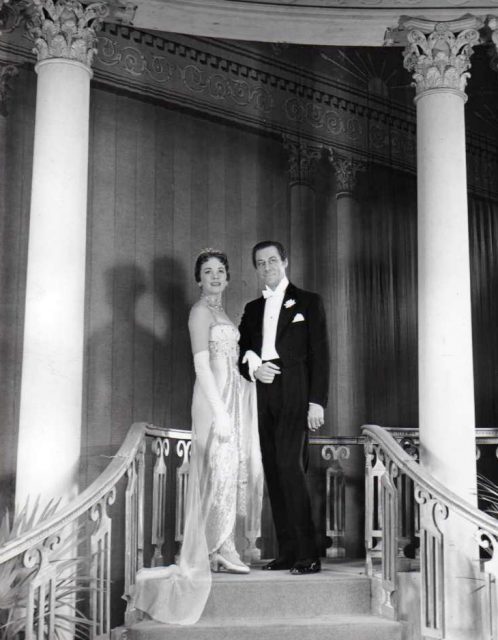
What transpired in those hours, no one knows for sure, but many believe that a distraught Landis issued the actor an ultimatum: Leave Palmer or we’re through.
Harrison left around 9:00 pm then phoned Landis at 1:30 in the morning to say goodnight and let her know that he would be leaving for New York.
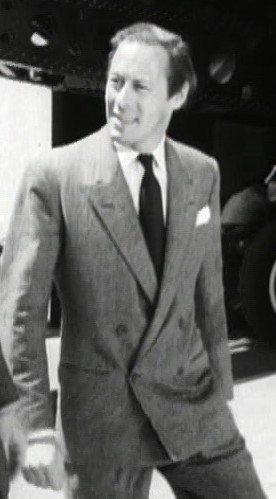
Landis’s body was discovered the following afternoon by Harrison and her maid. There were four empty pill bottles scattered on the floor. In her hand, a rosary and a note to her mother.
The studio tried to hush up the whole sordid affair, but it was in vain. Since Harrison had discovered Landis’s body, there was simply no way he was getting out of this mess unscathed. He found himself answering uncomfortable questions at the coroner’s inquest.
Harrison and Palmer attended Landis’s funeral and left for England soon after. Fox studio dropped Harrison from his contract, and it would take several years for his career to recover.
Read another story from us: How “The Rat Pack” Got its Name
After divorcing Lilly in 1957, he would have his biggest success in the 1964 musical My Fair Lady, for which Harrison would win a Best Actor Oscar for his spot-on portrayal of Henry Higgins.
